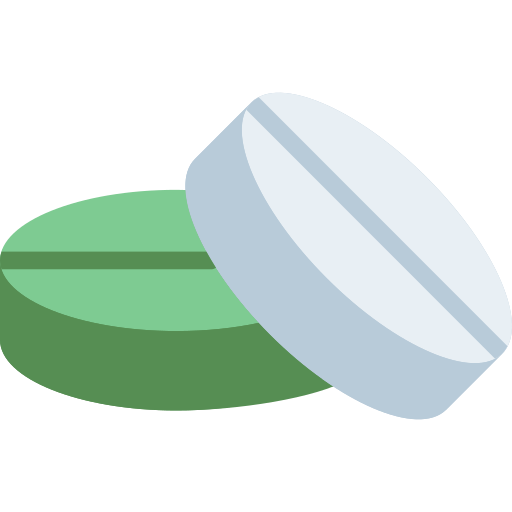
Product Details
Description
Cerebral vascular accidents and cerebral insufficiencies: Ischaemic or even haemorrhagic acute accidents, chronic manifestations of the above accidents or of cerebral atherosclerosis. Mental retardation in children: Ease of resuming individual contact, sociability and learning, improved intellectual performances and school results. Behaviour and psychotic problems in old age: Memory deficits, particularly with regard to fixation and evocation asthenia adaption disorders, disturbed psychomotor reactions. Patients suffering from myoclonus of cortical origin.
Piracetam is contra-indicated in patients with severe renal insufficiency (creatinine clearance < 20 ml/min) and hepatic impairment. As the principal route of elimination for Piracetam is via the kidney, special care must be taken when treating patients known to suffer from renal insufficiency. Monitoring of renal function is recommended in such cases. The increase in half-life is directly related to the decrease in renal function and creatinine clearance. This is also true for the older patient in whom creatinine clearance is dependent on age. When the creatinine clearance is < 60 ml/min, or serum creatinine is >1.25 mg/100 ml, the dosage prescribed should be calculated as following: CrCl 60-40 ml/min: Dosage should be 1/2 of normal dose CrCl 40-20 ml/min: Dosage should be 1/4 of normal dose
The side effects reported include nervousness, agitation, irritability, anxiety and sleep disturbances. The incidence of these during clinical trials was (≤ 5%) and they were more often noted in the older patients taking > 2.4 gm daily. In the majority of cases, a dose reduction sufficed to make these symptoms disappear. Some patients may complain of fatigue or drowsiness, gastrointestinal problems, e.g. nausea, vomiting, diarrhoea and stomachache have also been reported but their incidence during clinical trials was ≤ 2%. Other symptoms e.g. vertigo, headache, trembling and sexual stimulation have occasionally been reported.
Piracetam should not be prescribed during pregnancy or when breast feeding, except under exceptional circumstances. Piracetam is able to cross the placenta.
Children: No formal pharmacokinetic study has been conducted in children. Elderly: In the elderly, the half-life of piracetam is increased and the increase is related to the decrease in renal function in this population (see Section Dosage and Administration). Renal impairment: Piracetam clearance is correlated to creatinine clearance. It is therefore recommended to adjust the daily dose of piracetam based on creatinine clearance in patients with renal impairment Hepatic impairment: The influence of hepatic impairment on the pharmacokinetics of piracetam has not been evaluated. Because 80 to 100% of the dose is excreted in the urine as unchanged drug, hepatic impairment solely would not be expected to have a significant effect on piracetam elimination.
Piracetam appears to be devoid of toxicity even at very high doses and, therefore, the need for specific measures to be taken in case of an overdose is avoided. Drug Interactions: In a single case, confusion, irritability and sleep disorders were reported in concomitant use with thyroid extract. At present, no interaction has been observed with the following anti-epileptic drugs, clonazepam, carbamazepine, phenytoin, phenobarbitone and sodium valproate, based on a small number of studies.
Adjunct anti-epileptic drugs, Drugs used in tremor, tics & related disorder
Piracetam is compatible (physico-chemical compatibility) with the perfusions of: Glucose 5%, 10%, 20% Fructose 5%, 10%, 20% Sodium chloride 0.9% Dextran 40 (10% in a 0.9% NaCl solution) Ringer Mannitol 20% HES solution (Hydroxy Ethyl Starch) 6% and 10% The stability of these solutions has been demonstrated up to 24 hours.
-
Support 24/7
Call us anytime -
100% Safety
Only secure payments